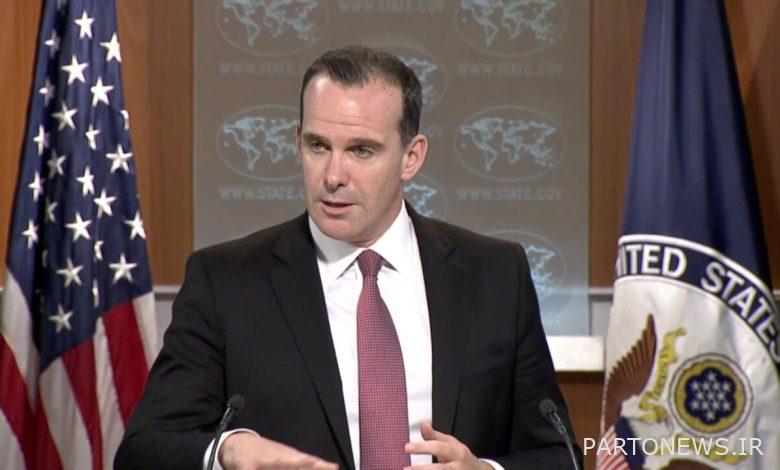Continued failed anti-Iranian policies; The Biden administration is looking to use the sanctions tool

Brett McGurk, the coordinator of Middle East affairs in the White House, said that the Biden administration intends to use sanctions and diplomatic isolation against Iran.
At the same time, he claimed that Washington is not looking to escalate the situation.
On Wednesday local time, the Axios website quoted three American officials as saying that Brett McGurk told a group of experts at a think tank last week that it is highly unlikely that the 2015 nuclear deal with Iran will be revived in the near future.
Axios claimed: The weakening of the possibility of resolving the deadlock in the nuclear negotiations increases the pressure on US President Joe Biden to design a plan B.
According to these three sources, McGurk claimed in an explanatory call that the reason for not reaching a nuclear agreement is that the Iranians are unable to make a decision.
McGurk claimed that the Biden administration intends to use sanctions and diplomatic isolation against Iran, but Washington is not looking to escalate the situation and will use force only as a last resort.
He said that the difference of opinion with the Israeli regime is not about a possible military attack, but about the continuation of the American effort to revive the JCPOA or change its position and press for a longer and stronger agreement.
The American newspaper New York Times previously quoted analysts and former officials and wrote: After more than a year and a half of Biden’s presidency, his administration’s approach to foreign policy strategic priorities is surprisingly in line with the policies The Trump administration is consistent.
The Axios website announced on Wednesday local time that Robert Mali, the US special representative for Iran affairs and other officials of the Biden administration, reported to the Foreign Relations Committee of the House of Representatives on Thursday in a confidential briefing about the negotiations and the status of Iran’s nuclear program. They will explain.
Robert Malley, the US special representative for Iran affairs, and Brett McGurk, the coordinator of Middle East affairs in the White House, explained the policies of the Joe Biden administration towards the Islamic Republic of Iran, as well as the Vienna negotiations, in a closed meeting with the members of the US Senate Foreign Relations Committee on June 25. they did
Acknowledging the failure of the policy of maximum pressure against Iran, Robert Mali said at the hearing of the US Senate Foreign Relations Committee that the best way to deal with Iran’s nuclear program is to return to the JCPOA.
After the meeting, the senators admitted that the hands of the White House are empty.
Ned Price, the spokesman of the US State Department, told reporters on Tuesday evening, August 5th local time: “We are reviewing the draft understanding for mutual return to full adherence to the JCPOA, which Josep Burrell shared with us and also with Iran.” We will communicate our response directly to the EU.
He stated: We are studying the changes proposed by the European Union and we will respond to them in a short time. Burrell did not mention a time frame in his proposal, we will act quickly in response to his proposal.
This American Foreign Ministry official claimed: We hope that Iran will finally take advantage of the opportunity that has been in front of this country for some time.
He claimed: We will continue to pursue a mutual return to adherence to the JCPOA, and this effort will continue until returning to the JCPOA is in line with the interests of the United States.
Eight rounds of intensive negotiations between representatives of Iran and the 4+1 group in Vienna in March 1400 reached a stage where the success or failure of the talks now depends solely on the political decisions of the United States as the culprit of the current situation. If Washington takes the necessary decisions it is aware of, the few remaining issues can be resolved and a final agreement reached within days.
American officials and Western media continue to play the blame game and insist on showing Iran as the cause of the delay in reaching the final agreement and the possible failure of the negotiations. This is while the demands of the Islamic Republic of Iran have been set with a realistic approach in accordance with the requirements of the 1994 agreement and in accordance with the experiences gained from the performance of the western parties.
Joe Biden’s government, which claims a diplomatic approach towards Iran and an effort to return to the JCPOA, has not yet taken a step to show its goodwill.
Most of the countries participating in the talks want a faster conclusion of the negotiations, but reaching a final agreement is pending the political decisions of the United States regarding a few remaining important and key issues.
The Islamic Republic of Iran has always emphasized that it is ready to reach a good, strong and stable agreement if the western parties are realistic.

